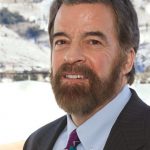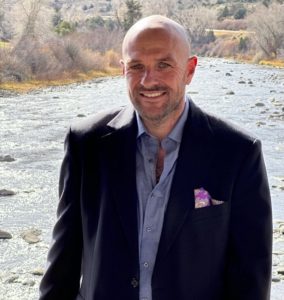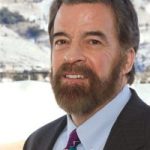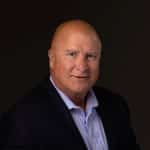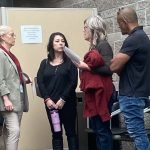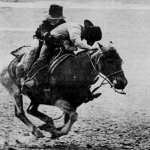Robbins: The truth, the whole truth and nothing but the truth
It’s brilliant if you think about it.
What is known as “The Oath” goes something like this: “Do you solemnly swear to tell the truth, the whole truth and nothing but the truth, so help you God?” Or else, more modernly, “Do you solemnly swear or affirm that you will tell the truth, the whole truth and nothing but the truth?”
The ath is used far and wide to swear in witnesses to court proceedings before they offer testimony. It is like the little “14k” stamped on gold to assure its authenticity.
First of all, the word “solemnly.” Let’s stop and consider it for a moment. In its secular sense, the word means “marked by grave sedateness and earnest sobriety.” In other words, offered seriously and with temperance. You’re neither giddy nor distracted.
Next, let’s dwell upon the verb “to swear.” It can mean “to assert as true,” or better yet, “to assert by what is holy or precious within you.” The word “affirm” is similar. It means to earnestly attest to something.

Support Local Journalism
So, at the outset, this is deep and serious stuff.
Then, at least historically, The Oath is topped off by asking for God’s help in steering you to do right. It ends by asking for guidance and assistance from whom or whatever you may hold as holy or divine.
There are, of course, somewhat similar versions. Instead of invoking God’s assistance, The Oath can go like this: “Do you solemnly swear to tell the truth, the whole truth and nothing but the truth under penalty of perjury?” So, if God’s watchful eye isn’t quite enough to stiffen up your spine, maybe the fear of enjoying the hospitality of your local constabulary will be.
So, at this point, we’ve got ourselves a rye (or “wry”, perhaps) oath sandwich, solemnity on one side and God as the heel of the loaf on the other. But what about the “fixin’s” in the middle? Well, that’s the truly inspired part. You see, it covers all the bases.
Lies, you’ll note on reflection, come in three general flavors: there are lies of commission, lies of omission, and lies of influence or diversion.
Lies of commission are fibs, plain and simple. You’re making stuff up. So, the first part of The Oath compels you “to tell the truth.” When you said, “I do,” what you’re swearing to is that you’ll leave your inventor’s kit at home. You’ll answer what is asked of you honestly.
Lies of omission are those where stuff is conveniently left out. An example here might be useful. You’re asked, “Did you see so-and-so take the iPad?”
You say, “Uh-uh.” But what you leave out is that while you may not have actually seen him filch it, you saw him stuff it in his backpack, drop it in the back seat of his Volvo, saw him playing “Angry Birds” on it, and heard him brag over Skittles and beer about the heist. While you truthfully responded that you didn’t actually “see” your pal take the darn thing, you know good and well he did, and you have “omitted” the relevant information that you have. So the “whole truth” covers that. Tell us (truthfully) “everything you know.”
Lies of Influence are a little bit harder to get your arms around. Think of them as feints or diversionary tactics. “Did you take the iPad, Mr. So-and-so?”
You say, indignation swelling in your breast, “Me? I’d never do a thing like that!”
You remember the movie “The Best Little Whore House in Texas?” Charles Durning plays a sly and wily politician (am I being redundant here?). When caught with his metaphorical (and perhaps literal) pants down (it is, after all, a whorehouse), he sings a memorable song, the key lines of which go like this:
“Ooh, I love to dance a little sidestep, now they see me now they don’t/ I’ve come and gone and, ooh I love to sweep around the wide step/ cut a little swathe and lead the people on.”
Besides a lesson for our season of political unrest, that is a lie of influence. A Houdini move. A little sleight of hand. Distract the questioner and leave him flatfooted, thinking he’s been answered. Or at least left scratching his head.
So where am I going with this?
Well it’s this: The Oath covers that kind of move as well. ” … and nothing but the truth.” In other words, don’t try to deceive us with distractions or fancy footwork. Speak the truth and nothing else. While the current unrest in Kashmir and the coming crisis of global climate change might indeed be gripping, what we are talking about here is an iPad and who pilfered it, so let’s stick to that. And nothing else. That and that alone will be our truth.
So The Oath’s a gotcha! It’s got you coming, going, and sidestepping slickly around the middle.
It’s brilliant!
For a further discussion about The Oath and other matters of deceit, I commend you to read “Spy the Lie,” by former CIA officers Phillip Houston, Michael Floyd and Susan Carnicero, whose discussion of The Oath was the seed that germinated into this column. It is a must-read for any budding new or wannabe attorney.
Perhaps G. Washington aside, oh, how these people sometimes are inclined to fib!
Rohn K. Robbins is an attorney licensed before the Bars of Colorado and California who practices in the Vail Valley with the Law Firm of Caplan & Earnest, LLC. His practice areas include business and commercial transactions; real estate and development; family law, custody, and divorce; and civil litigation. Robbins may be reached at 970-926-4461 or Rrobbins@CELaw.com. His novels, “How to Raise a Shark (an apocryphal tale),” “The Stone Minder’s Daughter,” “Why I Walk so Slow” and “He Said They Came From Mars (stories from the edge of the legal universe)” and “The Theory of Dancing Mice” are currently available at fine booksellers.

